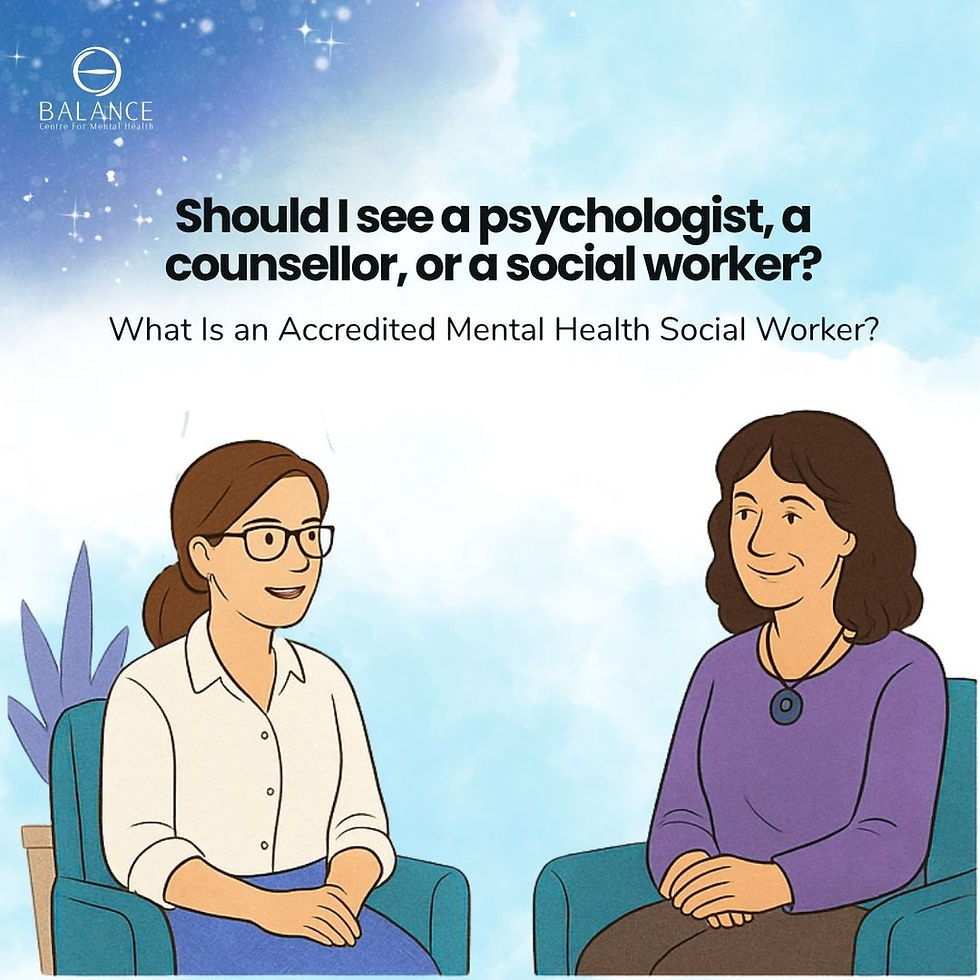How Mindfulness Can Help Adults With ADHD and Anxiety: A Game-Changer
- Teena Mogler
- Jul 26, 2023
- 2 min read
Mindfulness is becoming an increasingly popular form of therapy, and for good reason. It can be a game-changer for adults with ADHD and anxiety. Mindfulness is a non-pharmacological approach to treatment that complements medication therapy very well or provides an alternative to medication. In this blog post, we will discuss the benefits of mindfulness for adults with ADHD and anxiety, as well as some tips on how to get started!
Anxiety is an incredibly common emotion that we all experience from time to time. It's more than a feeling of worry or unease though, and can often cause intense physical reactions such as racing thoughts, rapid or shallow breathing and feelings of disconnection from the world around us. Anxiety can have a major negative impact on a person's life, from struggling with basic everyday activities to becoming overwhelmed by stress or agitation. Coping mechanisms and methods of relaxation are key for anyone wanting to manage their anxiety successfully - it’s about finding practical strategies to reduce symptoms effectively in the long term.
Similar to anxiety, ADHD causes us to feel like we are always switched on! like we are being driven by a motor. ADHD'ers often experience physical reactions such as racing thoughts, rapid or shallow breathing and feelings of disconnection from the world around us.
Mindfulness gives us an opportunity to slow down and be mindful of each moment. It encourages us to be present and recognize meaningful connections in our lives. Mindfulness can help us to achieve clarity within ourselves and enjoy life to the fullest. We can open up our senses and experience the world in a new way, allowing us to appreciate little moments and use them as opportunities for growth. When we use mindfulness, we can become aware of our surroundings, thoughts, words and actions, leading to meaningful inner transformation.
Both anxiety and ADHD can make it difficult to focus from time to time. But by practicing mindfulness, we are able to find our inner calm and improve our ability to concentrate on the task at hand. Benefits of this include improved work productivity, better communication between those around you, and happier relationships overall. Mindfulness is a beneficial practice that helps us learn how to focus and take control of our lives in a positive way.
If you have been itching to learn about Mindfulness without getting overwhelmed, take a deep breath (literally) and start with this simple breathing exercise.

This exercise can be done anywhere, anytime and no one else needs to join in! If practiced regularly it can make a substantial difference in your mental wellbeing. It may seem daunting to get started with Mindfulness but taking the first step is the hardest part - so why not start today?




Comments